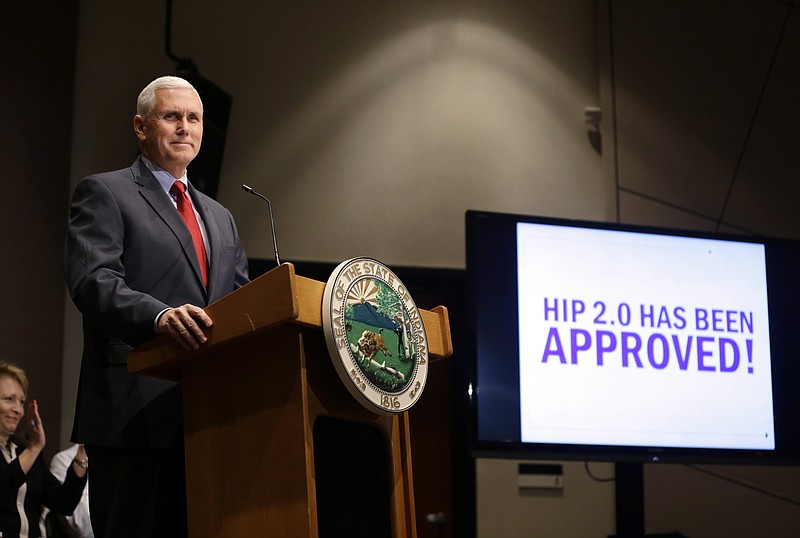INDIANAPOLIS - Indiana has received federal approval to expand health coverage to 350,000 uninsured residents through a state-run program that supporters say increases participant responsibility.
Gov. Mike Pence announced Tuesday that the Centers for Medicaid and Medicare Services had approved the state's waiver request for the plan his administration calls HIP 2.0. The Family and Social Services Administration will immediately begin taking applications, with coverage starting Feb. 1.
The plan builds off the Healthy Indiana Plan that began under former Gov. Mitch Daniels. The initial program currently enrolls some 60,000 low-income Indiana residents.
Pence's plan, which is an alternative to a traditional expansion of Medicaid, creates two levels of coverage. The basic level does not require payments from enrollees, while a second tier of improved coverage is available if enrollees pay a monthly fee ranging from $1 to $25.
Participants in HIP 2.0 will be required to contribute to a hybrid health savings account, according to Pence. Those who don't make payments can face mandatory co-payments for services or loss of coverage.
The plan also includes co-payments for emergency room use that are designed to encourage appropriate use of emergency services.
The plan will offer low-income residents help purchasing private-market insurance through their employers and will refer applicants to job training and job search programs offered by the state.
Pence submitted his request for the waiver to federal officials in July.
The costs of the expansion will be covered with revenue from Indiana's cigarette tax, hospital fees and federal Medicaid funding.
